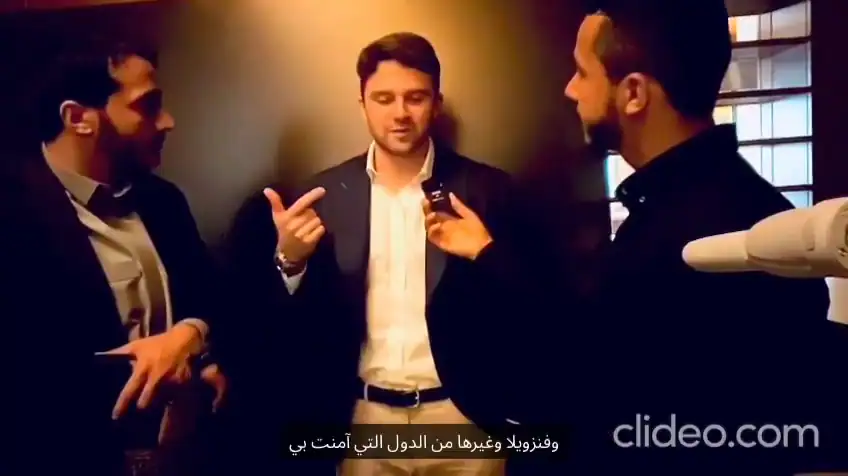
Following are excerpts from an interview with Abd Al-Malek Rigi, leader of the Jundallah movement in Iran, which aired on Al-Arabiya TV on October 17, 2008:
Abd Al-Malek Rigi: The only thing we ask of the Iranian government is to be citizens. We want to have the same rights as the Iranian Shiite people. That's it. We do not want discrimination between Sunnis and Shiites in this country. The Shiites are free to talk about their beliefs in public, to criticize and challenge the Sunni beliefs, by means of their books and the media. A Sunni, however, is not allowed to defend his beliefs, and to respond to the lies that the Shiites level against them on TV, in radio, in the press, and so on. Sunnis are not allowed to defend their beliefs in any way. If a Sunni scholar dares to speak out, he is immediately sent to the darkness of jail – not because he committed any crime, but merely for defending his faith, responding to a book that contained lies about his school of thought, or clarifying a suspicion raised by the Shiites.
Secondly, the Shiites publicly mock and deride the Sunni beliefs, and they do so through official media outlets. For example, we revere Mu'awiya, one of the Prophet Muhammad's companions, but the Shiites view him as an infidel. They are entitled to believe this, because it is their faith. However, there is a consensus of the Islamic nation that he was a companion of the Prophet Muhammad, and one of the people who created a written version of the Koran.
As long as we are under the rule of one government, we must respect the feelings of one another. By respect, we mean that it would be better if they refrained from disparaging Mu'awiya, but if they choose to do so, they should give us the chance to clarify the truth, respond to their allegations, discuss it with them, and argue it out on the basis of evidence. But we find ourselves in a bind. We have been deprived of all these legitimate rights, and we are not allowed to preach our faith in any way.
I personally was imprisoned in Kurdistan. My only crime was preaching my Sunni faith. We have never proselytized among the Shiites. All we did was open the eyes of our Sunni brothers about some of their beliefs. I was imprisoned merely for preaching my [Sunni] belief – a thing that is allowed throughout the world. Even in countries that are hostile to Islam, like the U.S., Britain, and other countries – perhaps even in Israel – you are allowed to preach your own religion. But the Sunnis in Iran are deprived of these basic rights. The Sunnis in the capital Tehran, who number more than half a million, have been prevented, since the outset of this accursed revolution, from opening even a single mosque where they could practice their religious rites.
[...]
The Iranian government controls the people solely by means of the media, and by weapons, killings, and blood. You may have read what Shahriari, the government representative said in an interview to the Sobhi Zahdan newspaper: "We have arrested 700 Jundallah members, and they are currently in our prisons." He said: "We call upon the government to hurry up and kill them because the treasury of the Muslims does not have sufficient funds to feed these people." That's the value they attribute to Sunni citizens. We consider them to be occupiers. They have occupied our country. The chance for dialogue might be lost one day, and we will not agree to hold a dialogue with them then. Today, many of us have been martyred, and many have been executed. They have killed our young men, and have begun killing our women. They have executed some of our religious scholars. You may have heard that they hanged two Sunni Scholars two months ago. Nevertheless, we are prepared to reach an understanding. Regardless of all these crimes, we are prepared to hold a dialogue with them.
[...]
Interviewer: Do you have any ties, or have you held meetings with Al-Qaeda?
Abd Al-Malek Rigi: No, we have no connection to Al-Qaeda. Jundallah is an Islamic movement, but not every Islamic movement is connected to Al-Qaeda or to the Taliban. We are an Islamic awakening movement, which does not have, and never had, any connection to Al-Qaeda or the Taliban. We have no intention of contacting them in the future either. These are rumors spread by the Tehran government.
[...]
The Tehran government is trying to create a rift between Jundallah and the Sunnis by means of these rumors. But we have always declared that we have nothing to do either with the U.S. or with Al-Qaeda.
[...]
Interviewer: Can you tell us exactly what capabilities you have? How many members do you have?
Abd Al-Malek Rigi: Since we established our movement, we have been training our men and sending them into [Iran]. We leave very few people in our military bases. This is our plan. We suffer economic problems, and we have meager resources. We cannot move all our soldiers to the mountains. We try to train 20, 30, or 50 men every month, and then send them in. So far, we have trained over 2,000 men. We have given them military, political and ideological training. But the number of people in the mountains does not exceed 200.













